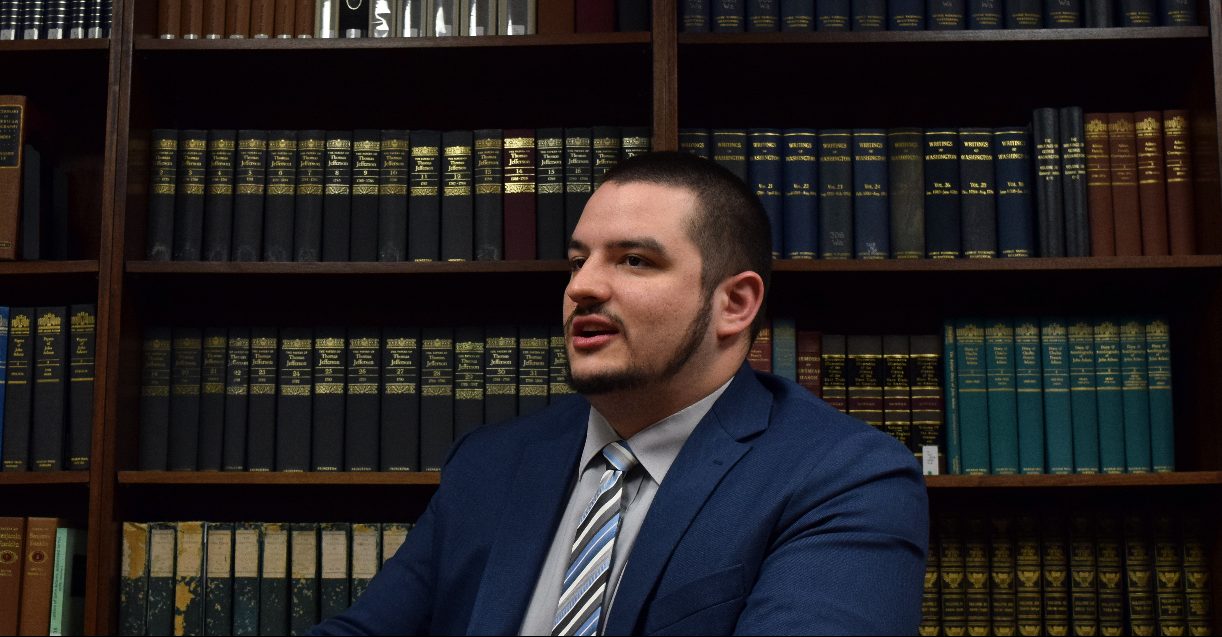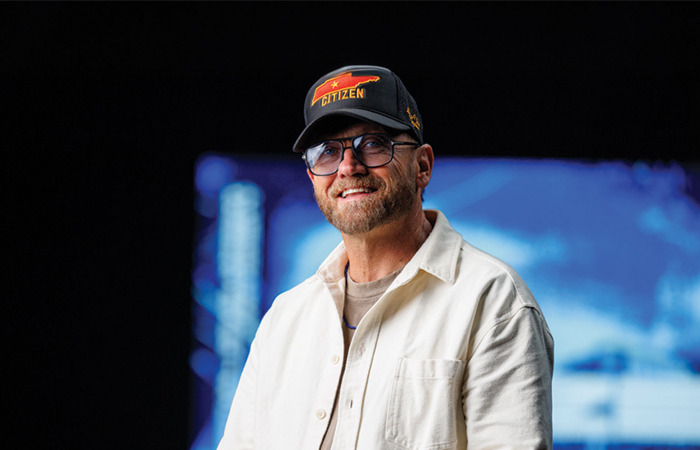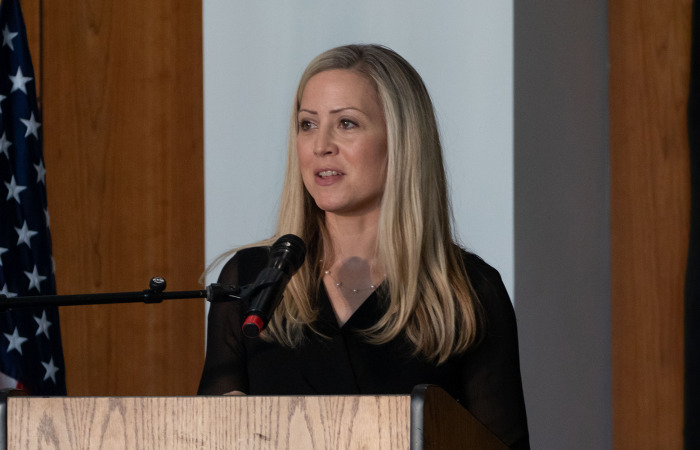When Robert Peters (’15) chose a law school, he selected Liberty University because of its “missional emphasis.”
“That’s one of the rewarding aspects of Liberty Law; you meet people who are not just talented but really have a heart for people,” Peters said.
He became aware of the broader child abuse crisis through his work with Liberty Law Professor Basyle (Boz) Tchividjian, founder of GRACE — Godly Response to Abuse in the Christian Environment.
“I didn’t realize how widespread it was,” Peters said. “On the one hand, it breaks your heart, and on the other hand, it inspires you to really attack it through your career.”
He knew that he wanted to reduce human trafficking and combat child abuse in his law career, beginning as a prosecutor in his home state of West Virginia.
“There are a lot of issues in West Virginia,” he said, “and I wanted to be a part of the solution.”
Peters set right to work after earning his juris doctor in 2015, starting with the Hampshire County prosecutor’s office, working on cases of civil abuse, neglect, and juvenile crime. Among his first cases was a successful conviction of a child pornography consumer.
When he moved on to work as a prosecutor in Marion County, Peters landed 143 sex crime convictions on one perpetrator.
Now, Peters is the co-founder and manager of SHIELD Task Force, a West Virginia nonprofit dedicated to ending child abuse. SHIELD stands for See, Hear, Intervene, Empower, Learn, Defend. (It’s also a nod to one of Peters’ favorite Marvel superheroes, Captain America.)
Peters works full time as the senior cyber and economic crime attorney and general counsel at the National White Collar Crime Center (NW3C) in Fairmont, W.Va., where he develops prosecutor training for law enforcement and attorneys, particularly dealing with sex crimes and the “dark web” (a part of the internet that is hidden from search engines and where more illegal activity often takes place).
“I am hoping to really take some of the practical tips and tricks I’ve learned in practice and export those to a broader audience,” Peters said. “And I am thinking creatively about the resources that I wish I would have had when I was a prosecutor that could have made my work more effective, and I want to develop those for law enforcement and prosecution.”
The NW3C links criminal justice agencies across jurisdictional borders, providing support for the prevention, investigation, and prosecution of economic and high-tech crime through a combination of research, training, and investigative support services. NW3C has more than 5,000 member agencies in the U.S. and its territories as well as 15 other countries throughout the world.
Peters said his training at Liberty Law enabled him to succeed early in his prosecution career.
“What I learned, from utilizing courtroom accommodation motions to minimize the trauma of your victim and increase their ability to testify, to using 44B motions, where you can delve into prior bad acts of the defendant — these are things that don’t get an emphasis in the field and a lot of prosecutors are scared to do. I knew how to do those on day one because of the quality education and expertise that Professor Tchividjian and others had,” Peters said.
Share your accomplishments, career advancements, family news, celebrations, and other life events through Liberty’s Class Notes. Submissions will be published online and may be featured in the Liberty Journal.




